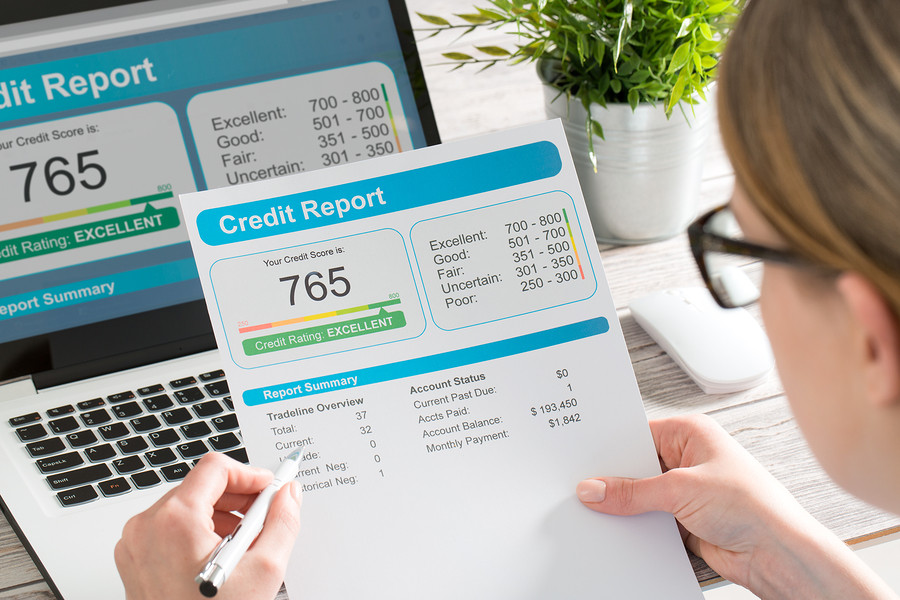Whether you are renovating your house, buying a new home or applying for credit card; your credit score is likely to play a pivotal role in whether or not your application for a loan is approved or declined.
As frustrating as this can be sometimes, credit ratings are unlikely to go away any time soon, but luckily below are some practical tips to help improve your credit score.
Before we begin let’s quickly look at difference between credit score, credit rating, credit report and credit file.
What is a credit score?
A credit score or credit rating is a numerical score of your credit worthiness used by creditors to determine if you are likely to be a worthwhile customer. Your credit score sums up the information contained in your credit report. The higher your credit score the better your chances of getting a line of credit.
What is a credit report?
Your credit report or credit file on the other hand is a longer document with information about your credit history such as late payment of bills, defaults, credit limits etc.
How to improve your credit rating
Review your credit report
The first place to start is to check your credit report to find out if you have an major problems, so you can start to fix it. The three credit reporting bodies in Australia are Equifax, Dun & Bradstreet and Experian, and they are required by law to provide you with a copy of your credit report within 10 days, although you can pay to get your credit report sooner if you wish.
With your credit report at hand, you can check it for any major issues and inconsistencies.
Identify and dispute any errors
Even finance companies make mistakes, so check the details and dispute anything that you think is wrong. Credit reporting bodies are required to investigate any errors reported and this usually means asking the creditor to provide proof. If the the creditor does not provide proof within a reasonable time the credit bureau would remove the listing from your record
Lower your debt to credit ratio
According to Credit Cards NZ – the free credit card comparison website, your debt to credit ratio is the amount you owe divided by the available credit to you. You can further multiply this by a hundred to get the percentage value. The lower your debt to credit ratio the better your credit score.
Creditors use your debt to credit ratio to gauge your financial strength. The idea is that the more of the credit line available to you that you have used up, the more likely you are to be in financial difficulty, and as such, the more likely you are to default on your repayments.
Get a line of credit
A new line of credit would allow you build some credit history if you don’t already have a line of credit. You can start with something small; for example, a store card. A new line of credit would also reduce your debt to credit ratio and therefore boost your credit rating.
Do NOT apply for more than one Line of credit at a time
Whenever a creditor runs a credit check on you, it has a small negative impact on your credit score which can add up. These are know as hard credit enquiry as oppose when you check your credit report which is considered a soft credit inquiry. Applying for multiple credit cards might seem like a good idea to save you time, but could end up ruining your credit score.
Pay-off your debt
This goes without saying, paying of some of your existing debt would help to improve your credit rating. Paying off your existing debt shows that you are responsible and committed to paying off your debt.
Increase your available credit limit
You can apply for your credit limit to be increased, for example, on your credit card or store card. A higher credit limit, as you would probably be aware of by now, brings down your debt to credit ratio and helps to improve your credit score.
Pay the bills on time
Late payments of bills can be recorded in your credit file especially if not paid within 60 days. Several records of late or inconsistent payment of your bills could negatively impact your credit rating.
Try not to pay just the minimum repayment amount
Paying back just the minimum repayment might be seen as an indication of hardship, but paying back more than is required shows a level of commitment to paying off your existing loan which creditors would find encouraging and should improve your credit score.
Diversify your line of credit
Creditors see a diverse range of credit types as a positive because it shows that you are able to manage multiple credit lines although, some credit types such as payday loans could have a negative impact on your credit score.
***
The views expressed on this page by the author it’s their own, not those of Best in Australia, and it shouldn’t be considered as advice.


